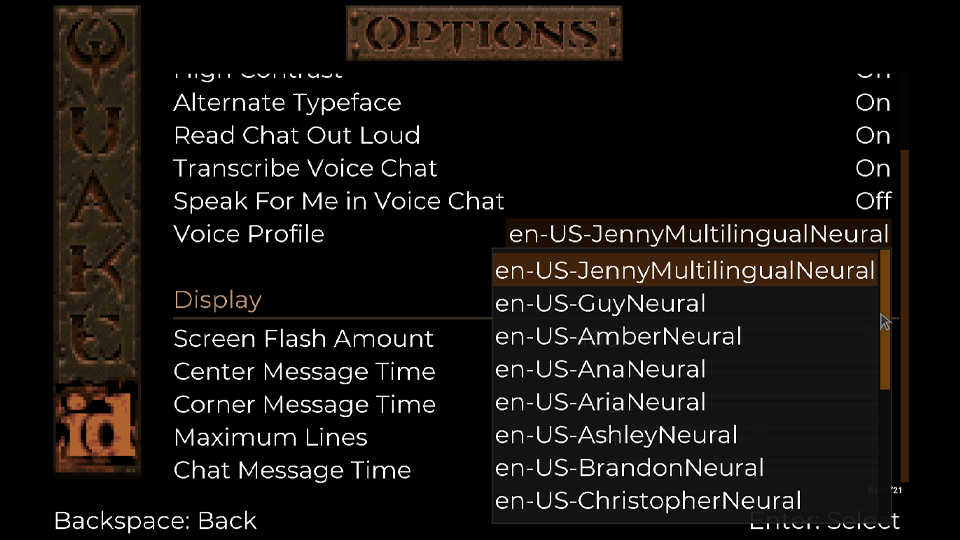A quarter of a century later, Quake gets modern accessibility features
Accessibility features in games are becoming far more common these days, led by some particularly forward-thinking developers, but it's still nowhere near common enough. Fortunately Quake is getting several helpful new features, just 26 years after its original release.
The latest version of Quake — to be specific, the official multi-platform "enhanced edition" — now has a high-contrast, more readable font for people with vision impairments (or who just can't be bothered with the stylized type), and a pair of chat-to-voice and vice versa options.

Image Credits: id Software
Users can set incoming chat to be spoken out loud in a synthesized voice, and for their own outgoing chat to be sent to the audio channel with a voice of their choosing. Incoming voice chat can also be automatically rendered as text. These options will be helpful for people with a variety of disabilities and preferences across all platforms.
Nothing that will protect you from Shamblers, though. You're on your own there.
I'm not highlighting this because it's unprecedented, but because it's such a perfect example of how to make a great game even better. When Quake was made, it was a historic accomplishment, but accessibility options were barely even contemplated. It's still around and active, and part of being a leader in the games industry has to be taking forward strides in inclusivity and accessibility. Sure, it took a couple decades, but better late than never.
The diversity of the gaming public is easy to underestimate — and any options you can build to make your game easier to play will be appreciated by someone, and perhaps thousands or millions of people.

 Yahoo Finance
Yahoo Finance 